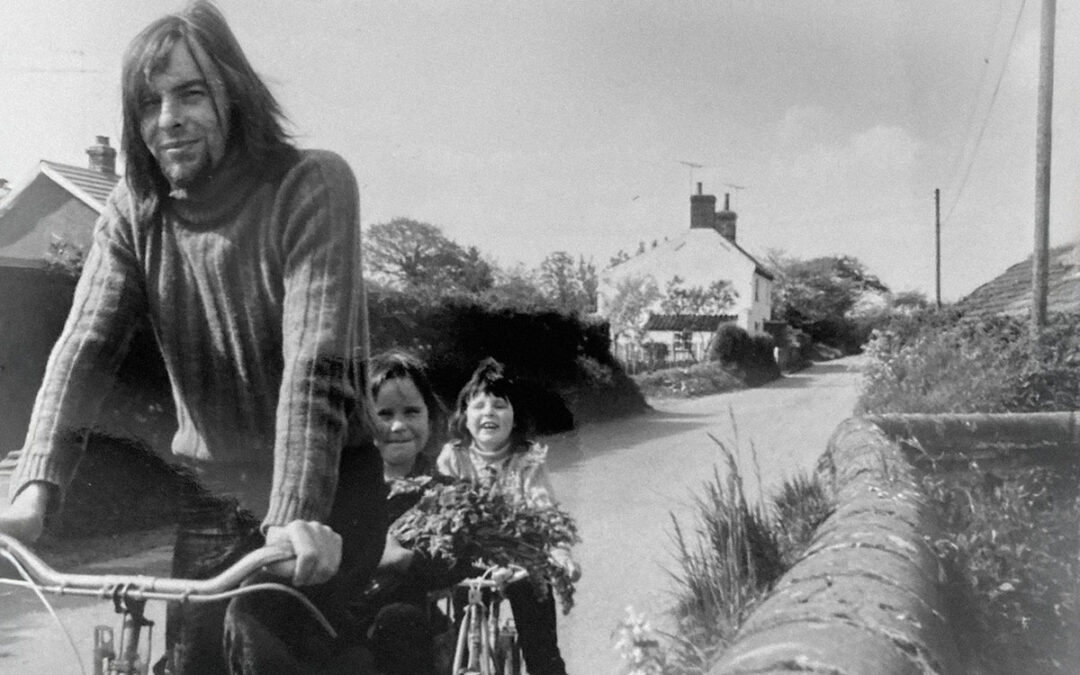I woke this morning muddle-headed about dreams and trying to recall what grandiose scheme I had had about righting the world’s wrongs. That didn’t seem possible, so then I turned my mind, as one does, to the question of making a translation of that poem by St John of the Cross which begins ‘En una noche oscura’, and is usually, in English, given the title ‘The Dark Night of the Soul’.
This is an important poem for me and I’ve been thinking for some time that I could do with working out more exactly why I give so much importance to poetry. As a teenage person I took refuge from the bewilderment of life, and the difficult certainties of love, in books. There weren’t that many books in the house (but there was a Complete Works of Shakespeare, so I read that), and there was an excellent library in Croydon. They allowed you to borrow a couple of books at a time, and there wasn’t a rule to stop you going back the next day and taking away another two.
I used to return suitcases full of books and they were kind to me about the fines. So that way I read books that I heard about (War and Peace, Victor Hugo, Kafka) and others that I found browsing the shelves (imagine the impact in the 1950s on a sixteen year old birdwatcher of The Hawk in the Rain). The Faerie Queene Book 1 was a set text, so I borrowed a Complete Spenser and read the rest of it. Same with the Prologue to Chaucer’s Canterbury Tales: and his Troilus and Criseyde led me to Henryson’s Testament of Cresseid, and so on. And then a second hand bookshop opened down the hill from the school.
I think I must have been looking for epiphanies or some resounding Road to Damascus experience. Something that would explain with certainty what life was for.
As a small child I was much taken with the story of Samuel and the Voice that called to him in the night. How pleasant to be given that assurance. Of course there have been many ‘mini satori’ moments on the way, what Gaie Houston has called ‘not a full-blown aha experience, but a squeak, just the ah, perhaps, without the ha.’ The tall bush in sunshine beside the footpath from the end of Court Wood Lane to Farleigh, covered in honeysuckle and surrounded by a cloud of white admiral butterflies: the redstarts flying up from the path by the hedge: Mr Etherington reading aloud the entire ‘Rime of the Ancient Mariner’: ‘Western wind when wilt thou blow/That the small rain down can rain/Christ, that my love were in my arms/And I in my bed again.’ The realisation that the bird I could see at the top of the ash tree was a great grey shrike: the realisation that the word for the feeling I was experiencing is ‘love’: ‘It fell upon a little western flower/Before milk-white, now purple with love’s wound.’ Wordsworth’s ‘Tintern Abbey’, Matt Arnold’s ‘Dover Beach’, poems by Henry Vaughan, the birth of my brother, the births of my daughters.
And so on. I’ve become aware that this writing might have become narcissistic (too much about me). So I’m enlisting the help of another poet, Chrissy Williams.
The Lost – Dante’s Inferno, Canto 1
lines 1-3
Nel mezzo del cammin di nostra vita
mi ritrovai per una selva oscura,
che la diritta via era smarrita.
At one point, midway on our path in life
When I had journeyed half of our life’s way
Half way along the road we have to go
I came to in a gloomy wood
In the midway of this our mortal life
Midway upon the journey of our life
Midway along the journey of our life
I came around and found myself now searching
Through a dark wood, the right way blurred and lost
I found me in a gloomy wood, astray
I found I was in a dark forest
I found myself within a forest dark
I found myself obscured in a great forest
Bewildered, and I knew I had lost the way
Halfway through the story of my life
I woke to find myself in a dark wood
Gone from the path direct
For I had wandered off from the straight path
For I had lost the path that does not stray
Midway in our life’s journey
The straightforward pathway had been lost
Chrissy Williams
Notes on this poem
Acknowledgements to various translations of Dante’s Inferno, Canto 1, lines 1-3, by Appelbaum, Cary, Carson, Kirkpatrick, Longfellow, Mandelbaum, Musa and Sisson.
I belong to a generation whose history lessons were marked by simple assertions, for example ‘the Renaissance began after the fall of Constantinople’ (1453). Amongst these was the notion that ‘modern’ literature began with Dante and Petrarch, who wrote in an Italian that we recognise today. So, the first three lines of the first epic poem of the Modern era. This has importance, it has status. It also has meaning (I’ll get to that in a moment). What Chrissy does (first of all) in her twenty one lines is show us the possibility and the impossibility of translation. And poetry itself is a primary example of translation: the notions, impulses, of thought and feeling are translated into words that convey something of the original experience and hopefully add to it. Coleridge says somewhere that poetry is ‘the best words in the best order’, and another thing that this poem does is show this labour in progress – ‘gloomy wood’ ‘dark wood’ ‘gloomy wood’ ‘dark forest’ ‘forest dark’ ‘dark wood’. Who does not fear the shadows when lost in a darkening wood? And here’s another thing, all the poets mentioned in the Note (an important part of the poem) at the poem’s end, repeat the struggle for the ‘best’ words and their repeated efforts build into the poem a sense of refrain (important characteristic of poetry). It sings. ‘Sweet Thames run softly till I end my song’.
Rishi Dastidar uses the phrase ‘think like a poet’, and here we have a collection of poets, including Dante, showing us how. In English conversation we have the phrase ‘mid-life crisis’, often laughed off, but which can mean that the subject is stunned by a lack of purpose and understanding. ‘La diritta via era smarrita’. ‘Blurred and lost’, ‘obscured’, ‘bewildered’. Literally the lines in Italian that the poem ‘translates’ are ‘about’ a middle aged person who has lost their way in a wood. The added in meaning, admittedly based around the assumption that life is a journey with some purpose (which readers might dismiss), is that the narrator has sleep-walked into an entirely lost state of mind. The continuing poem tells how they find, with the help of guides, their way back into meaning.
But Chrissy’s poem is only incidentally about the what happens next. It’s primary concern is with the intensity of the moment when the narrator wakes up to being lost, the ‘ritrovai’. And Chrissy’s genius is in the realisation that, by repeating the struggle for meaning that the various translations engage with, the reader’s sense of what being lost is like is thoroughly awakened. Hence the repetition of the phrase ‘I found’. It is wonderfully paradoxical that three lines of poetry become three stanzas, and that the effect is to intensify the potency and importance of the three lines.
The first two stanzas deal with the first two lines, but each has a concluding couplet that elucidates the last two lines. Repetition is key here, the first stanza has ‘life’ five times, it’s like a bell dinging the sense into the reader’s head. Likewise ‘found’, four times in stanza two. The effectiveness of the poem is cumulative, the same words, or synonyms of them, are arranged and re-arranged. It’s also noteworthy that the ‘best words’ , (‘dark’ ‘gloomy’) are very ordinary – mirroring Dante’s demotic speech. Dear poets, it is not necessary to sprinkle polysyllabic words of latin origin over your poetry.
I have become aware that my commentary on this poem is a parallel process. I’m doing what the poem does, repeating thoughts and meanings, shifting about, searching for certainty, when the certainty is contained in the process. So I’ll stop.
Understanding this poem is perhaps easier if you have been lost in a wood. Literally more difficult in a time when the woods are full of board walks and signposts to the Visitor Centre, but metaphorically easier in an age of acute anxieties.
Readers may like to know that I had something of a ‘full blown aha’ moment a couple of years back. A dear friend, Martin, has a church near their house where a portrait by Rembrandt lives. I was looking at this and thinking how the dead Christ looks to be a young man who has just been publicly tortured to death for his political beliefs. I had a strong sense (heard no voices) of ‘ah so it’s all true then’. I’ve not done anything with this moment yet as I’m a rationalist with a strong commitment to an existential psychotherapy. But it does help me enjoy my excitement about Chrissy’s poem.
Michael Mackmin
Chrissy Williams’ collections are published by Bloodaxe. Many thanks to Chrissy for letting me quote her poem and write about it.
Photograph: Editor with daughters, 1970-something, Tuttington, Norfolk.






